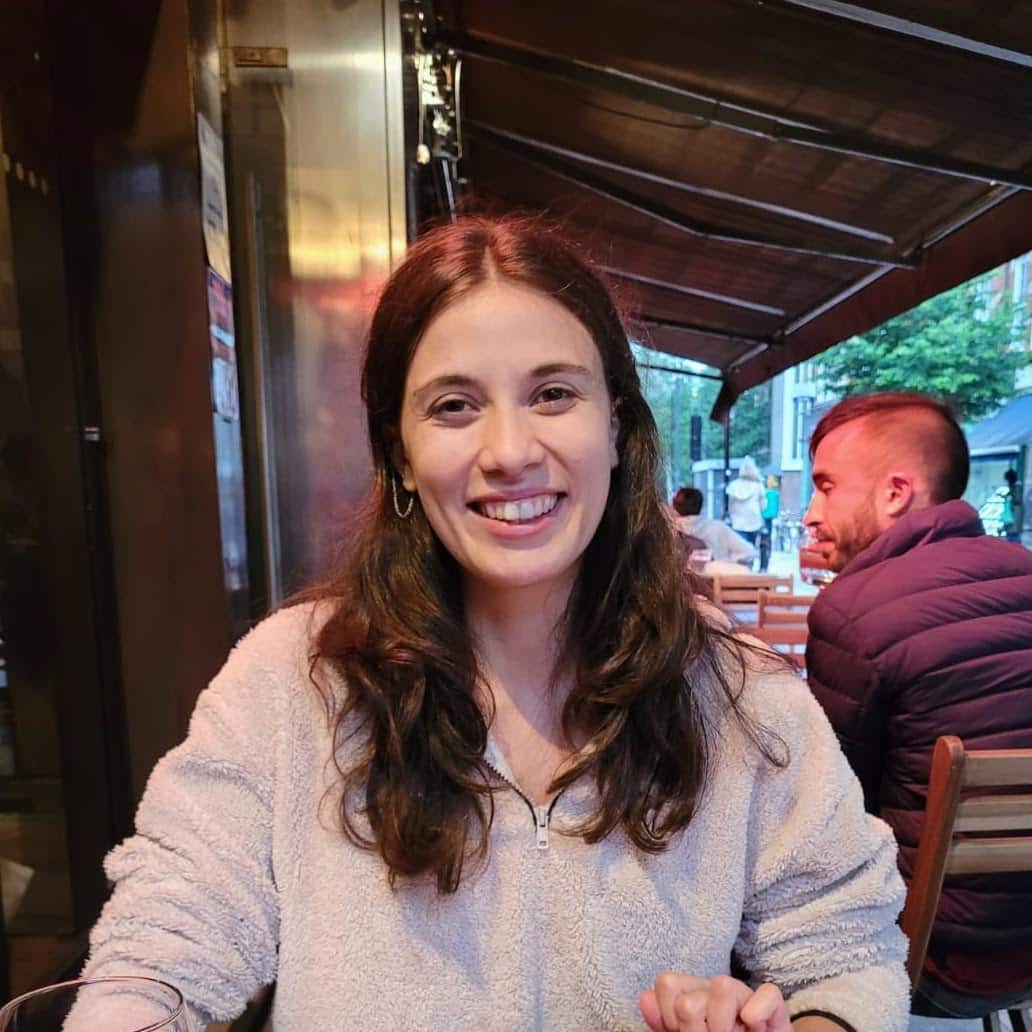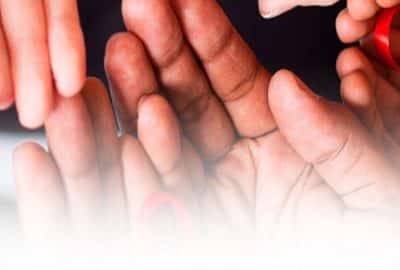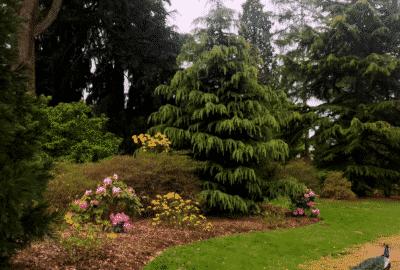Why do we develop bad habits?
Wednesday 23rd Mar 2022, 12.30pm
From biting our nails to idly scrolling on our phones, we all have those habits we wish we didn’t. In this episode of the Big Questions Podcast, we chat to neuroscientist Charlotte Collingwood about what makes a habit, why we develop them, and how we might go about kicking a bad habit.
Emily Elias: We all have that one little thing that we wish that we could change. I know mine. It’s pretty gross: I bite my nails. No matter how much I try to stop, I just can’t. So, on this episode of the Oxford Sparks ‘Big Questions’ Podcast, we are asking: why do we develop bad habits?
Hello, I’m Emily Elias, and this is the show where we seek out the brightest minds at the University of Oxford and we ask them the big questions. For this one, we found a researcher who has a habit of researching habits.
Charlotte Collingwood: I’m Charlotte Collingwood, and I study habits and addiction, in computer models, at Oxford.
Emily: Okay, so you are our expert today on habits. Where do habits even come from?
Charlotte: That’s a very good question, and one we’re trying to study. There are the habits as we think of them, which is the colloquial one, the one that we use in everyday life, which is just how everyone talks about a habit: you’re doing the same thing, over, and over, and over again. You’re not paying attention to it, and you don’t think about it.
In science, we try and define them as actions that you do all the time, when you’re not even thinking about what the action is causing. So, the food is in front of you. You keep eating, even though you’re full, because you’re having a conversation with someone. Or you open your phone and you look at your Messenger app, even though that wasn’t what you were planning on doing. That’s what a habit is. It’s when you stop paying attention to what comes next.
Emily: So, like brushing your teeth is a habit?
Charlotte: Exactly. You’re not paying attention to what your hand is doing at any one point. You just know: “It’s time for bed. I’ve got to brush my teeth.”
Emily: But not all habits are equal. Brushing your teeth, I would say, would go into the good side of the habits, and playing with your phone probably a bad habit, maybe?
Charlotte: Yes.
Emily: How are we able to tell which is which?
Charlotte: It’s not easy. Habits themselves aren’t really good or bad. It’s the consequences of the action that tells you whether or not it’s a good habit or bad habit. Sometimes, a lot of things can start as a good habit, like exercising regularly, and it can turn into a bad habit: you exercise even when you’ve got work to do, because it’s such a habit to get up and go.
In science we tend to focus on good habits rather than bad, but that’s just because it’s easier to do positive outcomes than negative outcomes, in an ethical sense. But any behaviour that’s happening over and over again is a habit, so whether it’s good or bad.
Emily: Okay, so how do, then, habits and the whole world of math come together, because a habit feels like a very human thing that we’re doing, whereas math feels like a very quantitative way of looking at the world?
Charlotte: It’s, kind of, exactly that. We have so much experimental evidence now that humans have habits, and animals have habits. When they’ve done something loads of times, they stop thinking about it, so that they can focus on other work.
With all this data, we have loads of theories about how habits come about. Maths is trying to put a more quantitative analysis of those behaviours. So, we take all of the numbers that we have from these experiments, and we try and see whether a maths model where we don’t have the noise of human subjects, who never do what you want them to anyway, and see if those theories actually make sense.
Emily: What specific habit are you working on and researching?
Charlotte: There is a really complicated social disease: addiction, that we’re all aware of. A tiny part of addiction shows behavioural patterns which are habitual. It’s a compulsive habit that, no matter how hard you try, no matter how negative the consequences are, you can’t unlearn that habit. For example, in drugs it would be drug seeking. In gambling it’s going to a casino, but there’s this tiny part of addiction which can be seen as the endpoint of habits – habits that are so strong that you have to really, really fight against them in order to not be completing them at any one point.
We want to use these compulsive habits, as they’re called, to see if our theories of how habits form in the brain actually make any sense. (Laughter) I do that by taking a model of the brain, and how we think a certain part of the brain works, and introducing a habit system to it, to see if, theoretically, that model can develop a habit and can develop an addiction.
Emily: So, this model that you’re working on, this model is a computer? This isn’t a human being or an animal that you’re experimenting with?
Charlotte: Not at all. I don’t have to touch animals, and I don’t have to talk to humans. I completely am on a computer, in my office, coding very short equations to see if I can get it to act like a human.
Emily: How do you even go about trying to make a computer think like a human would?
Charlotte: Using a lot of very strange, abstract ideas. Someone much smarter than me, a long time ago – well, not that long, I’m sure he wouldn’t appreciate it – figured out that some simple equations and maths give really good replications of how humans learn which actions have value in the world, how I can get that chocolate by reaching my hand out and picking it up.
Where I’m introducing the habit model is trying to take those equations and add just one more equation that does habit learning, as well as value learning. Then, with these small equations, I give this model a chance to make a choice. I tell it whether or not it made the right choice, and then it learns from the consequences. Over time, I can look at what decisions that model has made and whether they look like the decisions that humans make.
Emily: That’s wild that you have the ability to come up with our human behaviour and put it into a mathematical formula.
Charlotte: Yes. It’s almost scary if you put it like that, but I promise you, at the moment, I’m not looking at AI. It’s very simple. If I give you a choice of broccoli or chocolate, how often are you going to choose chocolate?
Emily: I know the chocolate/broccoli example is fairly basic, but that is the theory of how this fits into addiction.
Charlotte: Exactly. If we turn chocolate into an addictive drug, its value skyrockets because these drugs release a neurotransmitter, dopamine, in the brain, which is what actually tells our systems that, whatever action we just did, we got a huge reward.
So, we learn to make those actions loads, and much faster than we do any other action. Then, because it has got such a huge value, you repeat it more often. Your habit system is learning just as fast as that, what we call ‘goal-directed learning’, and so you lead to addiction. Or so we think.
Emily: What’s goal-directive learning?
Charlotte: That was the original idea of how humans learn, is you figure out that the left button, instead of the right button, gives you chocolate, where the right button gives broccoli. Your goal is to get chocolate and so you’re thinking about what you want at that point in time.
Another example would be if I had food and water as two options. Your goal-directed system would say, “Okay, well, I’ve eaten loads of food recently. I now need water. Therefore, I should choose the option that will give me water.”
Your habit system isn’t paying attention to that value. If you’ve gone for food loads because that food is chocolate and you really like it, it’s going to want to go for that option, no matter what state you’re in at the moment.
Emily: Now, I know you’re in relatively early days of working on your project, but if you are able to train a computer how to think like a human when it comes to building habits, whether they’re good or bad, what impact could that have on other research?
Charlotte: Hopefully, quite a lot. One of the big things in studying all of this stuff is the more we can understand about how people make the choices they make, and why they make the choices they make, and, beyond that, how the brain is leading to those choices, the more we can understand how we can stop choices that we don’t like making.
To bring it back to the addiction example that I’m working on, the more I can understand, and scientists can understand, about how addiction develops in the brain, and if we can take it down to even a small group of neurons in the brain, we can then create better treatment plans to help them stop these habits that are so strong, so that they don’t have to just rely on their own willpower the way they do today.
Emily: I struggle with all kinds of different bad habits. Not necessarily as bad as drugs, but definitely I’ve got some nail biting that I’m not proud of that I do. How do I start to kick a bad habit?
Charlotte: It’s not easy. Whether it’s drugs or nail biting, there’s not actually much evidence on how we can unlearn habits. Instead, all science, kind of, shows that all we do is replace them with stronger ones.
It’s actually a pretty good explanation for why, even when you’ve been fighting a habit like nail biting for years, all of a sudden you stop paying attention and a week later you’re biting your nails again.
So, the best way we – I – would go about kicking a bad habit would be to replace it with something else even more rewarding than what you’re getting. So, to bring it back to my favourite, chocolate – can you tell I really want some? – every time you think that you’re about to bite your nails or you see yourself going for it, have a bit of chocolate instead.
Have your brain learn that whatever cue it is in the world that’s making you want to bite your nails actually means you get to have some chocolate. Eventually, when you do that action, over, and over, and over again, it will become your new habit in response to whatever it is that’s making you stressed and biting your nails, hopefully.
Emily: This podcast was brought to you by Oxford Sparks, from the University of Oxford, with music by John Lyons and a special thanks to Charlotte Collingwood. Tell us what you think about this podcast. You can find us on the Internet: ‘@OxfordSparks’. We also have a website: ‘oxfordsparks.ox.ac.uk’. Or maybe, just maybe, you feel like being a pal and leaving us a review. We love reviews. Go on, get crazy. Write a review. I’m Emily Elias. Bye for now.
Transcribed by UK Transcription.




